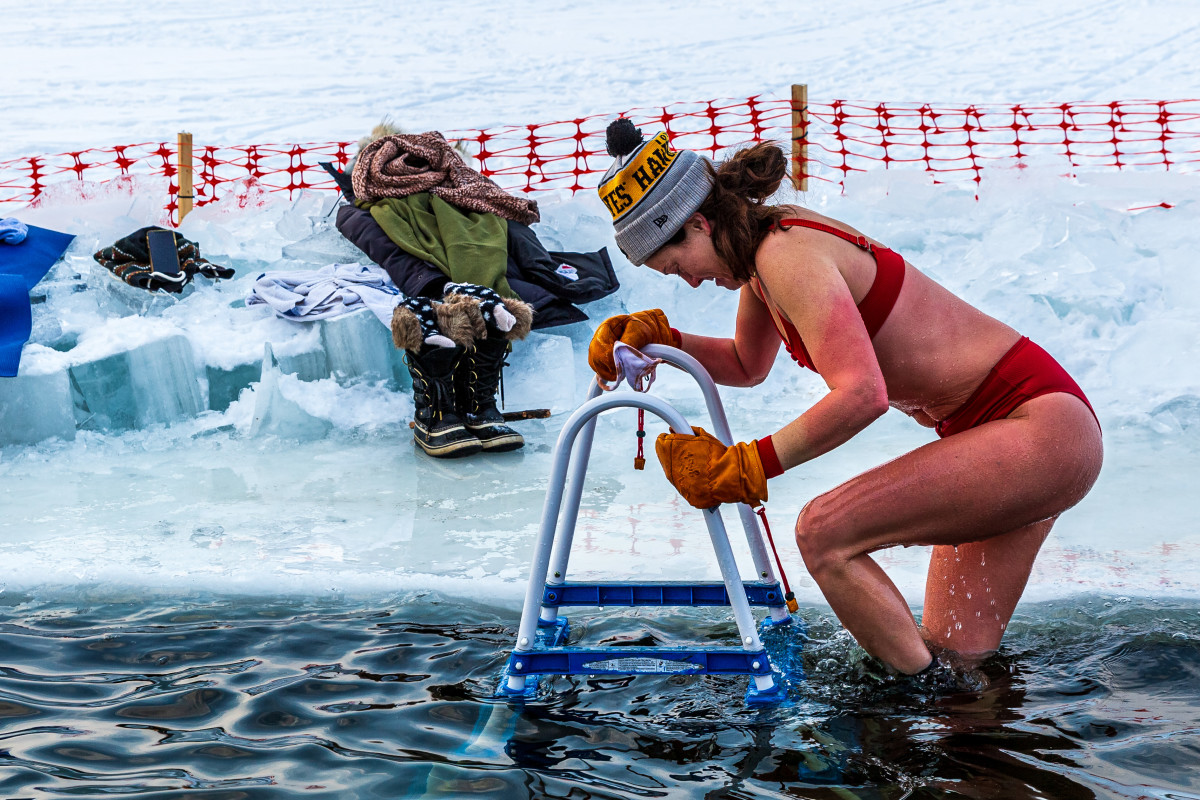Everyone has their own unique approach to starting off the day. Whether it’s a cup of coffee that jumpstarts your engine or eating a healthy breakfast, some ways surely work better than others. The same stands true for getting over the always dreaded afternoon lull to push through the second half of the day. Both of these are areas where many seek ways to improve motivation and focus.
Fortunately, neuroscientist and host of the Huberman Lab podcast, Andrew Huberman, detailed one specific approach that’s science-backed and has shown the ability to significantly increase dopamine levels. Best of all? It’s effectively free, as long as you have a way to utilize some very cold water.
Andrew Huberman Explains the Significant Impact Cold Exposure Has on Dopamine Levels

If you’re a fan of YouTube shorts or TikTok, you may have come across various videos of people taking part in cold exposure approaches in a large ice bath or any cold water. There are several reasons for this; however, one is the impact it has on dopamine levels.
Not only does the impact from cold exposure help increase dopamine levels, but it can help maintain them for long periods as well, which Huberman detailed.
“There are activities that we can do that will give us healthy, sustained increases in dopamine,” Huberman explained. “Both the peaks when they happen, and to maintain or even increase our baseline levels of dopamine.”
“In recent years, there’s been a trend toward more people doing so-called cold exposure. In part, this was popularized by Wim Hof, the so-called ‘Iceman.’ Getting into cold showers, taking ice baths, exposing oneself to cold water of various kinds, can, in fact, increase our levels of dopamine.”
How Much of an Impact Can Cold Exposure Have on Dopamine Levels, Motivation & Focus?
After highlighting a study that detailed the increase in dopamine can be upwards of 2.5 times above baseline due to cold exposure, Huberman explained just how significant that is.
“The increase in dopamine from a cold water exposure of this kind was comparable to what one sees from cocaine,” Huberman surprisingly explained. “Except in this case, it wasn’t a rise and crash. It was actually a sustained rise in dopamine that took a very long time, up to three hours, to come back down to baseline, which is really remarkable.”

Helen H. Richardson/MediaNews Group/The Denver Post via Getty Images
Huberman added that this is a highlight of the positives that people who use this approach detail from both a mental and physical standpoint. He also revealed that most people report feeling calmer and focused after getting out of the cold water.
“This does appear to raise the baseline of dopamine for substantial periods of time. And most people report feeling a heightened level of calm and focus after getting out of cold water,” Huberman added.
It’s worth noting that while the cold water exposure approach can be extremely beneficial, Huberman highlights the need for people to find the right level for their body and avoid overexposure. He also addresses the need to remain in for shorter periods initially to avoid overdoing it and risking hypothermia.
Before doing any cold plunge or cold exposure, be sure to do your research and find the safest and most effective approaches that work for you. There is also additional information in the video above and guidance/tips regarding cold exposure.
Related: How to Help Yourself Fall Asleep Faster: Andrew Huberman’s 1 Key Tip to Sleep Better
